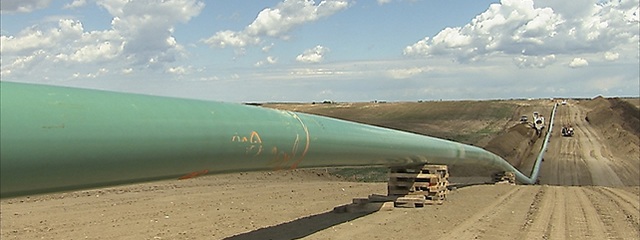FERC Chairman change leaves agency without a quorum
by January 30, 2017 8:10 am 497 views

President Donald Trump’s decision to force out Federal Energy Regulatory Commission Chairman Norman Bay and name Cheryl LaFleur to replace him will leave the federal regulatory agency in the unusual situation of having only two commissioners, falling short of a quorum to make critical decisions about the nation’s energy grid.
Following Trump’s announcement Thursday morning (Jan. 26) to name LaFleur to the top FERC post, Bay immediately announced his resignation, which is effective on Feb. 3. Bay and LaFleur, along with former Arkansas Public Service Commission Colette Honorable, are appointees of former President Barack Obama.
After Bay leaves the agency next week, LaFleur and Honorable will be the only remaining commissioners on the five-person regulatory panel, one short of a quorum.
“The Commission is working to get as many orders out as we can in the time we have left with a quorum. I am confident that, with the strong team we have here at the Commission, we can continue to do our important work,” LaFleur said.
Still, the lack of a quorum could delay ongoing dockets and investigations of the supposedly independent federal agency that regulates the interstate transmission of electricity, natural gas and oil. FERC also reviews proposals to build liquefied natural gas (LNG) terminals and interstate natural gas pipelines as well as licensing hydropower projects.
FERC TURMOIL POSES RISK TO TRUMP PLANS TO EXPEDITE PIPELINE PROJECTS
The FERC turmoil could also complicate a promise by the Trump administration last week to reduce the burden of regulations and expedite high priority energy and infrastructure projects that will create jobs and increase national security.
On Tuesday (Jan. 27), President Trump signed an executive order approving the restart of the 1,100 Keystone XL Pipeline that will connect oil production in Canada to refineries on the U.S. Gulf Coast. Greenlighting that project rolls back an executive order by former President Barack Obama in November that shut down the Keystone Pipeline after a lengthy review by the U.S. State Department.
At the same time, Trump also directed the Army Corps of Engineers and other federal agencies to expedite reviews and approvals for the remaining portions of the Dakota Access Pipeline, a $3.8 billion, 1,100-mile pipeline designed to carry around 500,000 barrels per day of crude oil from the Bakken and Three Forks oil production areas in North Dakota to oil markets in the U.S. Although the Keystone and Dakota access project won’t need approvals from FERC to resume construction, permitting for similar critical energy-related projects that affect the U.S. energy grid are now underway, as well as key investigations for natural gas pipeline projects that ship oil, gas and other refined products across the U.S.
LaFleur attempted to allay concerns about ongoing cases now before the regulatory commission amid fears that FERC will be left crippled by the resignation of top agency staffers following a federal hiring freeze for civilian employees. Like Bay, the Trump administration is forcing out remaining top agency administrators at several U.S. regulatory agencies that served under former President Obama.
“We are evaluating how best to do the business of the Commission after Commissioner Bay’s departure. We have already confirmed that all existing staff delegations will continue. We will be issuing a podcast on Monday with more detail, and I expect there will be still more to communicate on this in coming days.”
FERC APPOINTMENTS COULD TAKE SEVERAL MONTHS
Meanwhile, it is possible that President Trump will soon nominate a Republican to replace LaFleur, also an Obama appointee. He will also have to appoint three other commissioners to the independent federal agency, a process that that could take several months before confirmation by the U.S. Senate.
For example, President Obama tapped Honorable as a replacement for former FERC Commissioner John Norris in August 2014. It took five months before the former Arkansas PSC chairwoman received a hearing in early December 2014. She was finally confirmed a week before Christmas. And since FERC Commissioner Tony Clark stepped down in September, the federal regulatory panel has operated with only three commissioners.
“(The) nominations for the three openings at the Commission would be very welcome, and I look forward to the day when we have a full, five-member Commission again,” LaFleur said.
Several industry groups also commented on Bay’s resignation, hoping that ongoing infrastructure projects won’t be crippled by the “quorumless” agency. For example, FERC announced last week it will launch investigations of two interstate natural gas companies to determine if they may be substantially over-recovering their costs, resulting in unjust and unreasonable rates. Those probes could now be delayed.
“Norman Bay’s resignation from the commission will unfortunately leave FERC without a quorum. This means the commission will be unable to act on pending natural gas infrastructure projects of national importance,” said Don Santa, president and CEO of the Interstate Natural Gas Association of America (INGAA).
“We encourage the commission to act on all matters that are ripe for decision prior to Commissioner Bay’s departure, and especially pending applications for authority to construct needed interstate natural gas pipelines,” Santa said. “We also urge the commission to exercise to the fullest extent possible its authority to delegate certain functions to the staff in anticipation of the period during which it will lack a quorum.”
Like LaFleur, INGAA also appealed to the Trump administration to act soon on the FERC nominations.
“Given President Trump’s focus on infrastructure and domestic energy resources, we urge him to nominate candidates to fill the commission’s three existing vacancies as soon as possible. We, likewise, urge the Senate to act expeditiously on those nominations,” Santa said.
